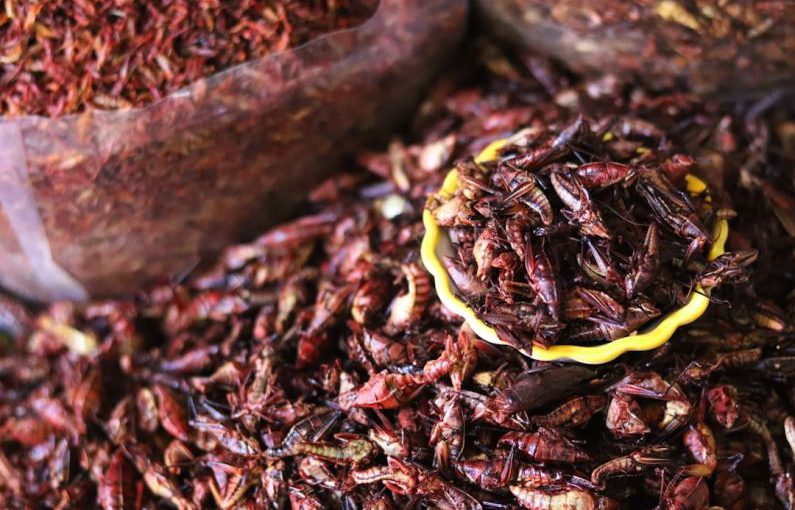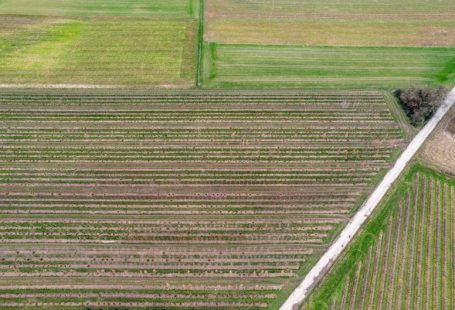With the global population steadily increasing and the demand for food rising, the search for alternative protein sources has become more crucial than ever. In recent years, there has been a growing interest in insect-based foods as a sustainable and nutritious option to meet the world’s protein needs. In this article, we will explore the rise of insect-based foods as alternative protein sources and their potential to revolutionize the way we consume food.
The Appeal of Insect-Based Foods
Insects have long been consumed in many cultures around the world, known for their high protein content and low environmental impact. In recent years, the Western world has started to catch on to the benefits of incorporating insects into our diets. Insect-based foods offer a sustainable protein source that requires significantly less land, water, and feed compared to traditional livestock farming. This makes them an attractive option for addressing the environmental challenges associated with conventional meat production.
Nutritional Benefits of Insect-Based Foods
In addition to being sustainable, insect-based foods are also highly nutritious. They are rich in protein, healthy fats, vitamins, and minerals, making them a well-rounded source of essential nutrients. For example, crickets are packed with protein, containing all nine essential amino acids required by the human body. Insects also contain beneficial fats, such as omega-3 and omega-6 fatty acids, which are important for overall health. By incorporating insect-based foods into our diets, we can diversify our protein sources and improve our overall nutritional intake.
Variety of Insect-Based Products
The market for insect-based foods is rapidly expanding, with a wide variety of products now available to consumers. From cricket protein bars to mealworm pasta, companies are innovating to create delicious and convenient options for incorporating insects into our diets. These products not only provide a sustainable protein source but also offer a unique culinary experience for adventurous food enthusiasts. With the increasing availability of insect-based foods in grocery stores and restaurants, more people are discovering the potential of insects as a viable protein source.
Overcoming the “Yuck” Factor
One of the main challenges facing the widespread adoption of insect-based foods is the psychological barrier known as the “yuck” factor. Many people in Western cultures are not accustomed to consuming insects and may feel apprehensive about trying them. However, attitudes towards insect consumption are gradually changing as awareness grows about the environmental and nutritional benefits of insect-based foods. As more consumers become open to trying insect-based products, the stigma surrounding eating insects is slowly fading away.
Environmental Impact of Insect Farming
Insect farming has a significantly lower environmental impact compared to traditional livestock farming. Insects require less water, land, and feed to produce the same amount of protein, making them a more sustainable option for feeding the growing global population. Additionally, insects produce fewer greenhouse gas emissions and waste compared to conventional livestock, further reducing their environmental footprint. By shifting towards insect-based foods, we can help mitigate the environmental impact of food production and promote a more sustainable food system.
Future Outlook for Insect-Based Foods
As awareness of the environmental and nutritional benefits of insect-based foods continues to grow, the future looks promising for this emerging industry. With ongoing research and innovation, we can expect to see a wider range of insect-based products hitting the market in the coming years. As more consumers embrace insect-based foods as a viable protein source, we can reduce the strain on our planet’s resources and move towards a more sustainable and resilient food system.
In conclusion, the rise of insect-based foods represents a significant opportunity to address the challenges of food security and sustainability in the 21st century. By incorporating insects into our diets, we can diversify our protein sources, improve our nutritional intake, and reduce the environmental impact of food production. As the global population continues to grow, insect-based foods offer a promising solution to meet the increasing demand for protein in a sustainable and ethical manner.





